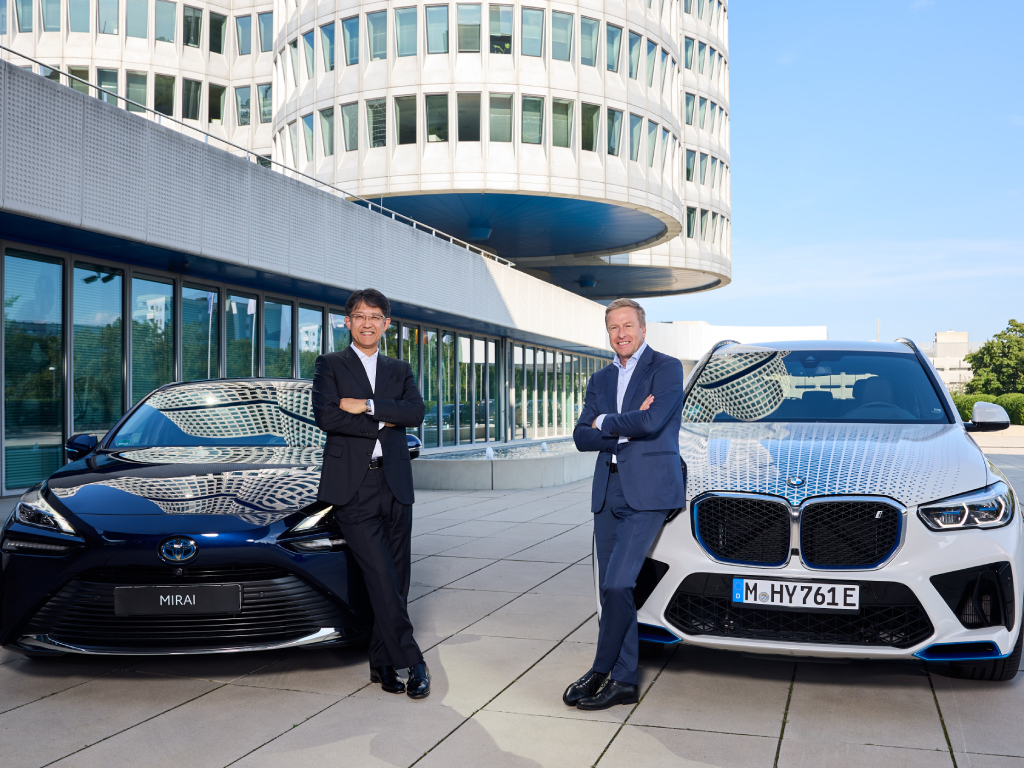BMW to launch first FCEV in 2028 in partnership with Toyota
BMW plans to launch its first-ever series production fuel cell electric vehicle (FCEV) in 2028, thereby offering customers an additional all-electric powertrain option with zero local emissions in a BMW.
The BMW Group and the Toyota Motor Corporation will combine their technical know-how in FCEV technologies to bring a new generation of hydrogen-powered vehicles.
BMW and Toyota partnership
The BMW Group and Toyota Motor Corporation will jointly develop the powertrain system for passenger vehicles. The core fuel cell technology (the individual third-generation fuel cells) will create synergies for both commercial and passenger vehicle applications.
The result of this collaborative effort will be utilized in individual models from BMW and Toyota, expanding the range of FCEV options available to customers.
Customers can expect the BMW and Toyota FCEV models to maintain their distinct brand identities and characteristics, providing them with individual FCEV options.
Combining the total volume of powertrain units by collaborating on development and procurement promises to drive down the costs of fuel cell technology.
We have already seen their partnership to create the Toyota Supra and the BMW Z4 sports cars, so it will be interesting to see what models they will come up with.
Individually, Toyota’s most prominent hydrogen-powered car has been the Toyota Mirai.
BMW will launch its first hydrogen-powered production model in 2028.
After successfully testing the BMW iX5 Hydrogen pilot fleet worldwide, the BMW Group is now preparing for the series production of vehicles with hydrogen drive systems in 2028, based on the jointly developed next-generation powertrain technology.
Here are some quick facts about the BMW iX5 Hydrogen concept they have been testing:
FCEV in the UAE
The UAE launched an FCEV initiative in 2017 when Al Futtaim Motors launched the first hydrogen station in Dubai Festival City. However, there has been no news on the progress of FCEVs since then, with BEV taking over recent sustainable mobility conversations.

There are no comments. Be the first!